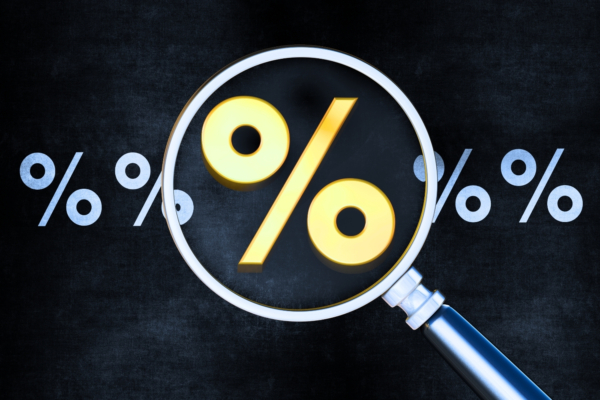
Guide to Homebuying: Homebuying Financial Checklist

In the earliest stages of the homebuying process, most people have one big question in mind: How can I prepare financially for this purchase? If you’re looking for a place to start, you’re in the right place! Our homebuying checklist can ensure you’re prepared to take on the financial responsibility of homeownership.
Homebuying Financial Checklist at a Glance
| Topic | To-Do List |
|---|---|
| Credit score | Check your credit report and score, correct any errors, and learn how to raise your score. |
| Budget | Establish your homebuying budget based on your income and debt. |
| Down payment savings | Based on your budget, determine how much you need to set aside for a 20% down payment or to meet minimum requirements. |
| Property taxes | Contact your local appraisal district to learn about property tax rates in the area you want to live. |
| Insurance | Get a quote for homeowners’ insurance and another for private mortgage insurance (if your down payment is less than 20%). |
| Other expected homebuying expenses | Consider other expenses that can come with purchasing a house like homeowners insurance, moving costs, improvements, maintenance, and more. |
Meet our team and get started.
Our local, award-winning lending team is ready to help you begin today.
Get Your Credit Score in Order
Banks don’t want to offer you a loan that you can’t repay. Most lenders are going to resell your mortgage to another provider, so they want to make sure your finances are in order and the underwriting is secure. No one wants to experience a foreclosure—borrow or lender, it’s bad news for everyone involved!
To mitigate this risk, you’ll need to prove you’re a creditworthy borrower. Lenders assess risk several ways, but your credit history is one of the first things they’ll look at.
Your credit report gives lenders a look at your borrowing history. It’s an easy way for lenders to gauge whether or not you’re likely to repay your mortgage. Your credit report includes several aspects, including:
- Repayment history
- Age of credit accounts
- Credit usage
- Credit mix
- New accounts/credit inquiries
Don’t rely on your score to tell you whether or not a lender will approve you for a mortgage! Though similar, each of the three major credit bureaus (Experian, Equifax, and TransUnion) have their own method of calculating their score, and lenders may use a completely different method.
How can you make sure your credit report is in good shape?
Not sure how to tackle your credit history? Follow these three steps and check out our article on “How to Become a Credit Report Expert”.
1. Check your credit report.
Checking your credit report is free. Everyone is entitled to one free credit report per year via annualcreditreport.com. Many people also have access to their credit or FICO scores through their bank or credit card company, and while credit scores are not an accurate way to evaluate your creditworthiness, they can be a good pulse-check on how you’re doing.
2. Dispute any errors that appear on your report.
Credit reports aren’t perfect. In fact, nearly one in three Americans has found a mistake on their report. Errors can be an indication of identity theft and can cause you to have a lower score. Disputing errors with the credit bureaus ensures that your lender is seeing accurate information and can give your score a boost.
3. Work on clearing any other negative marks.
If your report isn’t where you want it to be, see what you need to do to improve it. (Pro tip: We’ve shared some nifty advice here and here on how to improve your credit.)
If you have questions on how your credit history may affect your mortgage, you can always seek advice from an experienced mortgage lender.
Understand Your Budget
Next, you need to start thinking about your budget. This will help you determine how much money you’ll need for the down payment, what your monthly mortgage payments may look like, and what houses to look at when it comes time.
How to Determine Your Homebuying Budget
There are several ways to figure out how much home you can afford.
The best way is to get prequalified for a loan with a lender. To get prequalified, you will provide a lender with your basic financial information. In return, they will give you an estimate of how much you will be able to borrow. Getting prequalified is easy and can help you identify areas of your financial picture that you need to improve before you actually set out to apply for a loan.
Another way is to consult a financial planner. A certified financial professional will be able to assess your financial situation and other goals to help you determine how much you can realistically afford to spend on a home.
If you’re looking for a simple estimate of your homebuying budget, you can use an online home affordability calculator.
Save for Your Down Payment
Knowing your homebuying budget will inform how much you’ll need to have saved up for a down payment. Hopefully, you’ve been saving for a while, but if you haven’t, now is the time to get started!
How much should you save for a down payment?
A lot of experts recommend putting at least 20% down when purchasing a house. There are several benefits to putting this much down:
- No PMI requirements: If you put less than 20% down, your lender will require you to purchase private mortgage insurance (PMI). This adds to your monthly payment.
- Less interest: Bigger down payment = smaller loan = smaller interest payments. Some lenders will also give more favorable interest rates for larger down payments.
- More equity: A 20% down payment starts you off with a sizable chunk of equity— an advantage if you’re thinking of using that equity for a loan in the near future.
That said, 20% is a suggestion, not a requirement. Many borrowers can get a mortgage putting as little as 3% down or less, depending on the loan.
Know Your Property Tax Liability
Property taxes are one of those things that homebuyers can forget to account for. And with Texas property tax rates being among the highest in the country, your tax bill is one that you don’t want to sneak up on you!
Contact your county’s appraisal district or tax assessor-collector to learn about the property tax rates in the area that you plan to buy. Property taxes are different in every county, so it’s important to get exact information. Adding property tax into your monthly mortgage payment can help you estimate what your yearly tax bill will look like.
Note: Are home values in your desired area on the rise? Property taxes are ad valorem, meaning they are based on a home’s assessed value. So if property values are on the rise, your taxes will likely be as well. Keep this in mind when you determine whether or not you’ll be able to afford the yearly taxes.
Account for Homeowners’ Insurance and PMI
Don’t let the phrase “mortgage payment” be the last number in your budget—you have to account for homeowners’ insurance and PMI too! Depending on your home’s location and current value, these costs can be substantial. You can get a quote for homeowners’ insurance at any time from an insurance provider, and your mortgage lender can help you prepare for your PMI amount.
Don’t Forget the Smaller Expenses
A down payment isn’t the only thing you should be prepared to pay when you purchase a home. Many homeowners forget to consider other moving and homeowner-related expenses. While these costs are smaller, they add up and can leave your pocketbook hurting if you aren’t prepared.
Consider the following expenses:
- Moving costs (boxes, movers, truck rentals, etc.)
- Repairs and renovations
- Appliances and furniture to furnish the home
- Utility account setup, equipment installation, or initial fees
- Homeowners’ insurance
- Routine upkeep and maintenance
- Lawn care
- Pest control
Allocate money for these expenses in your budget. The goal is to buy a home and have cash reserves left—not to drain your savings account during the purchase itself, with nothing leftover for emergency savings or any of the expenses listed above.
If you don’t prepare for the post-homebuying purchases, you may find homeownership to be a more significant financial strain than you can handle.
Buy a Home One Step at a Time
Financially preparing to buy a house can feel overwhelming. Our goal at Amplify Credit Union is to take some of that stress out of the equation so that you can focus on choosing your dream home. Take the financial planning one step at a time, and you’ll be ready to start looking at homes in no time. Talk to our experienced lending team today!
Ready to get prequalified?
Apply today and start your journey toward your new home.


